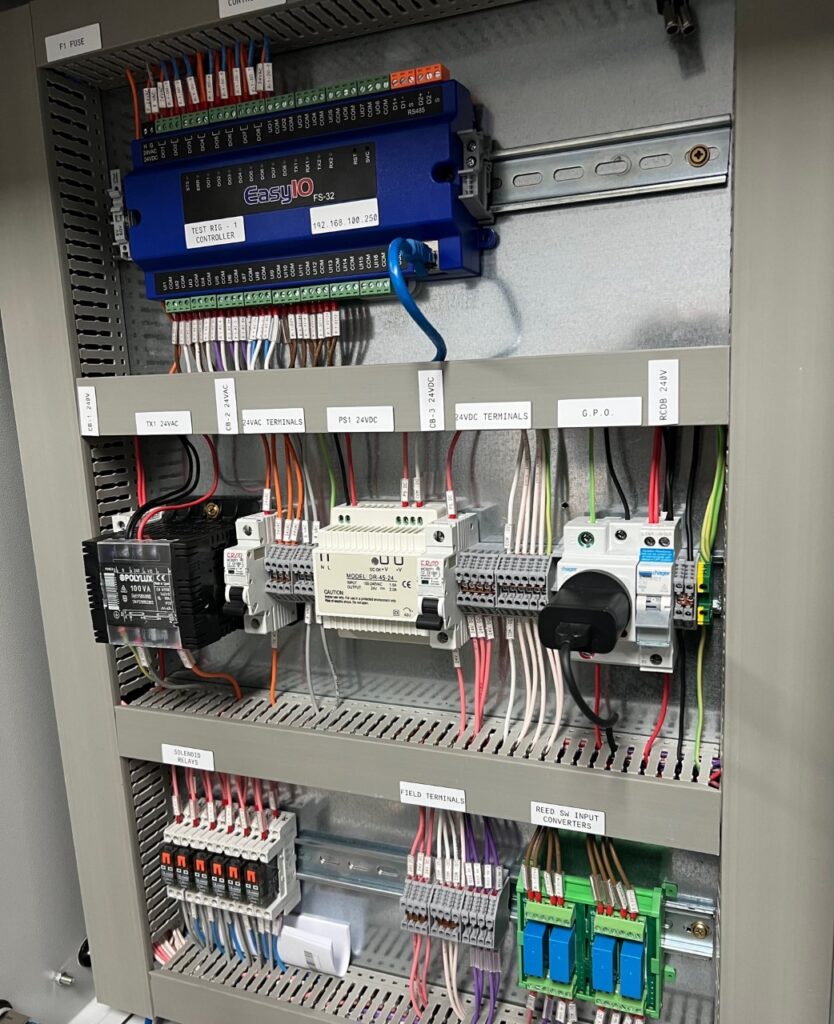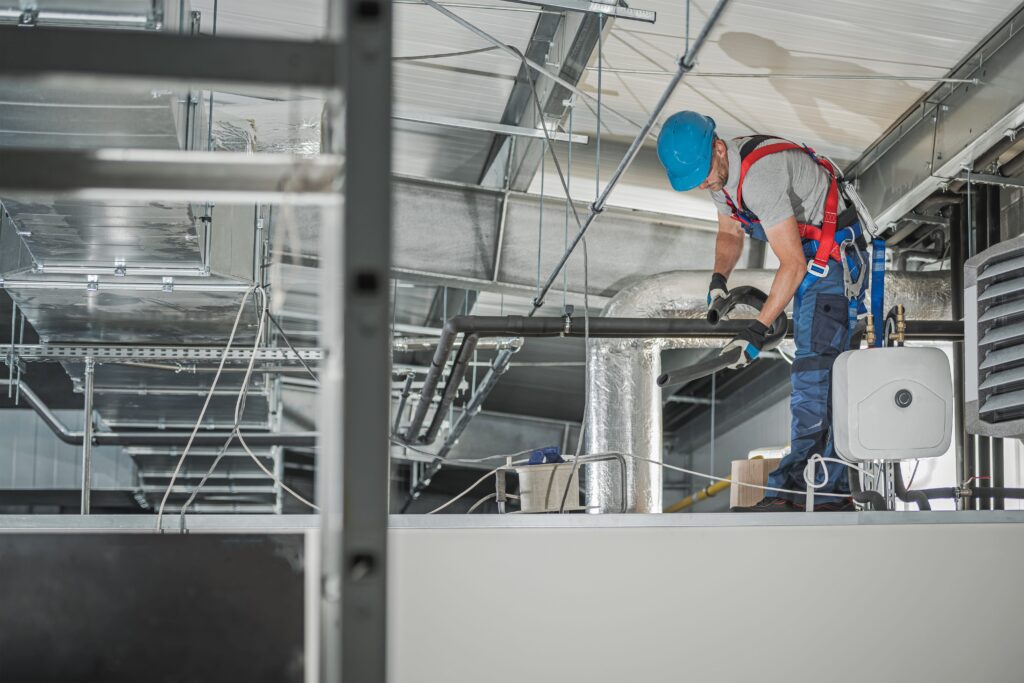Integrated Controls & Automation, our core business specialises in building management systems (BMS) provide information technology, security and engineering services to businesses in Brisbane, Gold Coast, Sunshine Coast & Toowoomba.
We can engineer, supply and install all the equipment and commission the entire system, from field devices right up to the head end for HVAC, lighting, power systems, fire systems, security systems, industrial refrigeration and process automation.
Our systems have the ability to have remote WEB enabled login from wherever you may be situated at any time of the day so that you can remotely monitor any part of a system – whether it’s computer room monitoring, chiller and plant management, including power generation, access control and/or CCTV Security video, or any number of smart building applications.
In addition to monitoring, we provide a data logging solution that can produce any reports required to allow the system to work for you. A built in alarm console with E-Mail and SMS functions can advise you of issues before the symptoms are detected by occupants or tenants, providing fast and accurate fault detection. Alarms can be tailored to alert the relevant trade or contact managing your building.
A properly installed and maintained automation system will reduce the overhead cost and promote a longer equipment commercial life. Integrated Controls and Automation prefer to base our solutions on the Siemens Desigo building management platform for managing high-performing buildings. However, we do use the Tridium Niagara N4 platform or J2 Finstack and EasyIO Hardware and regularly integrate with many other brands as required.

Building automation systems (BAS) and building management systems (BMS) both monitor and control all kinds of equipment in different types of buildings. They both act as an interface between building infrastructure and other systems, allowing them to communicate with each other, and giving you full control over the systems functioning within your building.
BMS helps to improve operational efficiencies, increase productivity, improve flexibility with growth or reduce downtimes.
BMS is sometimes also referred to as “BAS” or BMS/BAS. A BMS provides controls over applications like lighting control and HVAC systems, whereas a BAS has expanded capabilities that can include security, access control (i.e. elevators, doors), CCTV monitoring, and more.
The BMS manages the building’s physical infrastructure by integrating information from various sensors across equipment types to enable remote monitoring and control capabilities. A BMS also provides access to other building systems and equipment which can be interfaced with BMS such as security systems, fire alarms, and CCTV cameras.
A BMS enhances productivity by providing real-time status of key performance indicators (KPIs) such as lighting levels, temperature, humidity, and other important factors that need managing. A BMS enables continuous monitoring of KPIs for an improved understanding of how your business’ physical infrastructure is performing under different conditions or at certain times of the day or week.
A building management system (BMS), also called a building automation system (BAS), is a computerised system that integrates and coordinates the lighting, ventilation, air conditioning, security, fire safety, and other systems in a building.
The benefits of having a BMS include improved energy efficiency, greater occupant comfort, and better manageability of the building’s systems.
A BMS typically consists of three main components: sensors, controllers, and actuators. Sensors collect data about the conditions in a building (e.g., temperature, humidity, occupancy). Controllers use this data to make decisions about how to operate the building’s systems (e.g., when to turn on the air conditioning or lighting). Actuators are devices that carry out the decisions of the controllers (e.g., by opening or closing dampers or valves).
Some common features of a BMS include:
Some common applications for a BMS include:
The cost of a BMS depends on a number of factors, including the size and complexity of the system, the features required, and the level of integration with other systems. Generally, larger and more complex systems will cost more than smaller and simpler systems.
A BMS is typically installed by a IGOC team of engineers and technicians. The installation process generally includes the following steps:
The maintenance requirements for a BMS vary depending on the specific system. Generally, however, a BMS will require periodic calibration of sensors, replacement of batteries, and software updates.
There is no single answer to this question as each building is unique and has different needs. However, some factors that may indicate a need for a BMS include:

Whether you require routine maintenance, need new lights installed and wired, or are building a commercial building from scratch, IGOC’s team of commercial electricians are there for your needs.
We can provide electrical services for varying business types in a range of commercial spaces, such as offices, conference rooms, car parks, storage rooms and facilities, warehouses, and other commercial buildings, as well as implement tailored BMS/BAS for them.
